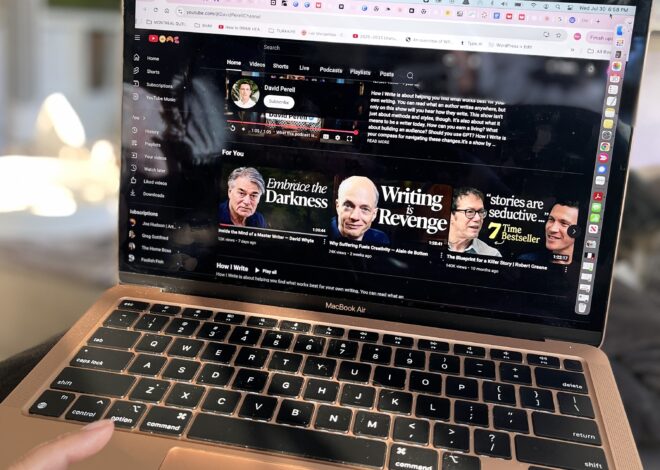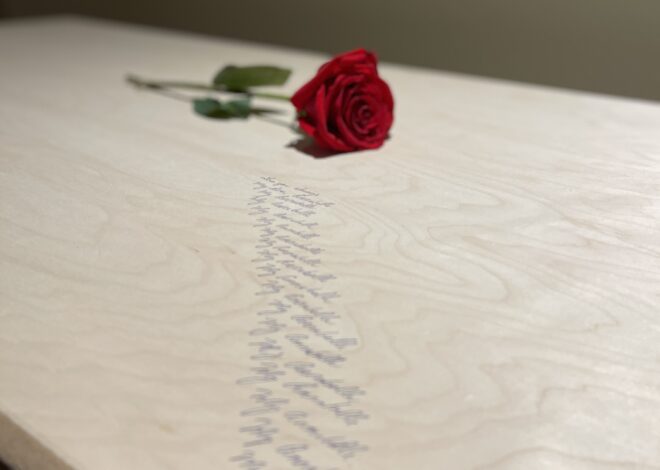
From Workhorse to Worthy: Healing Authority Issues and Reclaiming My Voice
A personal reflection on breaking free from the approval trap and finding my own voice
There’s a particular kind of exhaustion that comes from living your entire life for someone else’s approval. I know it intimately, and only recently did I start to understand where it truly came from.
I was watching a video called How To Approach Authority Issues from the YouTube channel Joe Hudson | Art of Accomplishment, and something clicked. In the video, Joe and guest Alexa Kistler explore how our early experiences with authority shape the way we relate to power, to others, and to ourselves.
Joe put it perfectly when he said: “Authority issues basically means that you are treating authorities not like human beings… almost everybody has authority issues but that’s the main thing… it’s somehow or another that you either think that the authority is trying to oppress you or the authority is somebody that you’re trying to please or the authority somehow can validate you or you’re just not treating them like a normal human being the way you would treat a friend or somebody on the side of the road that you have some level of projection onto them which is distorting your relationship with them.“
His words hit me like a revelation. I realized I had been placing people in positions of authority on pedestals, giving them the power to validate or invalidate my worth. It wasn’t just theory. It felt personal. I saw my own life reflected back at me.
That video opened a door. What follows is my walk through it.
In the Family: Teaching Daughters to Play Small
My mother took pride in her 16-hour workdays. She would light up when talking about earning recognition from her boss, as if her praise was the ultimate validation of her existence. She often said she had sacrificed a lot. It was her badge of honour. The amount she had endured and the things she had given up for others defined her worth.
Without realizing it, I absorbed that blueprint: work harder, sacrifice more, and maybe, just maybe, someone in authority would notice and declare me worthy. I learned that sacrifice was noble, that giving until it hurt was what good women did.
This pattern followed me into my first job at Sport Chek. I stayed after hours without pay to clean up, thinking I was being responsible (this went on for years). In truth, I was performing my significance. I stood up for the corporation, for the boss, for everyone except myself.
That was only the beginning. The blueprint followed me into every job, every relationship, every corner of my life.
The Soul-Stealing Years: How I Lost Myself in the Name of Responsibility
Throughout my twenties, I worked in places that slowly eroded my spirit. I wasn’t happy. I was employed. There’s a difference, though I couldn’t see it then.
I wore my busy-ness like armour, believing that if I just worked hard enough, I would finally prove I mattered. But no matter how much I gave, I barely earned enough to survive. I was living paycheck to paycheck, struggling financially while giving everything to jobs that underpaid and undervalued me.
The more I tried to prove my worth, the more I lost sight of it.
This dynamic wasn’t limited to work. In relationships, I gave and gave, hoping to be chosen. I supported a boyfriend who played golf during the day while I worked, convincing myself that having him meant I had value. I was so busy trying to earn love that I forgot to ask whether it felt like love at all.
I was living everyone else’s life but my own.
The Hidden Cost of Always Saying Yes
Looking back, I see how much I was performing. I filtered my words. I suppressed my needs. I avoided conflict with anyone whose approval I craved. I thought I was being agreeable. I was actually disappearing.
The psychological toll was immense. I lived with anxiety and defensiveness, constantly worried that one wrong move would shatter the carefully constructed image I had built. I was afraid to disappoint others, all while ignoring my own disappointment in myself.
The financial stress amplified everything. I didn’t feel I could ask for better pay because I needed to be liked. Yet the low wages left me exhausted and small. It’s hard to speak up when you’re barely surviving.
But here’s what I understand now: the real cost wasn’t just emotional or financial. The real cost was myself.
The Awakening: Realizing I Am Allowed to Have Opinions
The shift began when I started to understand that my worth wasn’t something I had to earn. I had been living in a distorted dynamic where I placed other people’s voices above my own. I thought it was respect. It was actually self-abandonment, dressed up as virtue.
The awakening didn’t come in one dramatic moment. It arrived in small flashes of clarity, like noticing how drained I felt after certain conversations or feeling the tension in my body when I agreed to something I didn’t want to do.
Once I began seeing the pattern, I couldn’t unsee it. But awareness alone wasn’t enough – I had to decide what to do with this new understanding.
Finding My Voice, Reclaiming My Authority
Recognizing the pattern was only the beginning. Changing it took time and courage.
Healing started with honesty. I began admitting when I disagreed. I said what I wanted. I practiced saying no without apology. Each act of truth felt enormous after years of performing compliance.
I was learning to become my own authority. This didn’t mean overpowering others, but honouring my own experience. This meant having hard conversations and setting boundaries that felt foreign at first.
Each truth felt risky. Each boundary felt like rebellion. But slowly, something new began to take root: a sense of inner safety I had never known.
The Work of Becoming Whole
As I began to release these patterns, I discovered something unexpected: space.
I started asking better questions: What do I want? What lights me up? What feels real?
I’m choosing a different path now as I’m approaching 50 in a few years. One that honours aging, honesty, and imperfection. One that values softness over performance, curiosity over control.
I am no longer chasing recognition. I am practicing presence.
An Invitation to Your Own Authority
If you see yourself in this story, if you’ve spent years being the reliable one, the agreeable one, the one who says yes while your own needs go unmet, I want you to know you are not alone.
Your worth isn’t something you have to prove through exhaustion.
At this point in life, we don’t need to sacrifice ourselves to be valued. We need to return to ourselves. To remember our voice. To trust it.
You are not a machine. You are not here to perform until you break down.
Your voice matters. Your needs matter. Your boundaries are worthy of respect.
Healing authority issues, for me, has been about remembering that the most important voice in the room is my own. Not louder than others, just finally heard.
This isn’t the end of the journey. It is the beginning of a more honest one.
The exhaustion I described at the beginning? It doesn’t have to be your forever story.
You can choose something different. One truthful moment at a time.
I write this as a reminder to return to self. To remember that beneath the patterns, the pleasing, and the performing, there is a person who deserves to be seen, heard, and valued. Just as she is. This is not negotiable. Embrace her.
This reflection represents personal insights and is intended for contemplative purposes. For professional guidance regarding relationship challenges, please consult a qualified therapist or counsellor.




